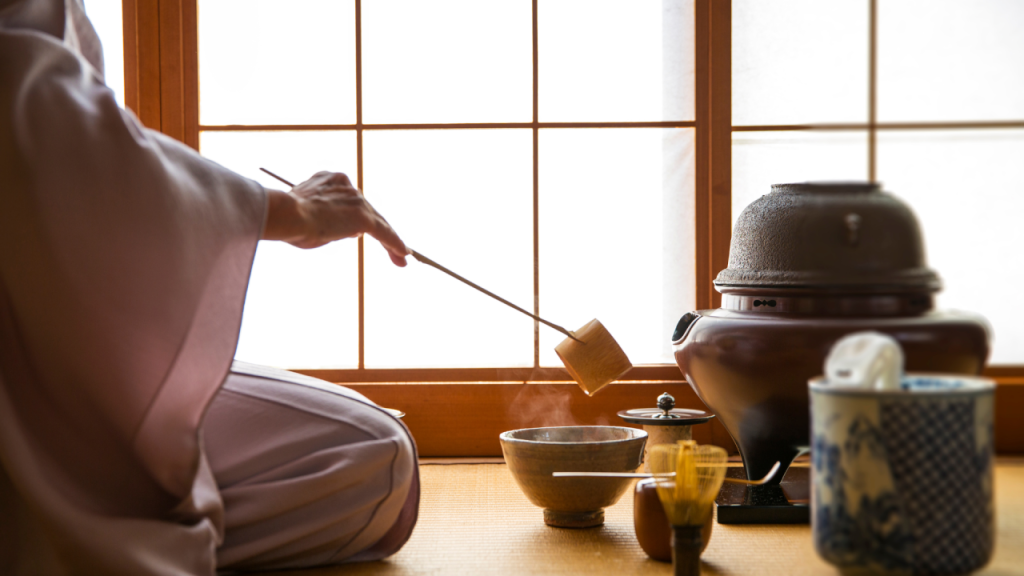Have you ever chipped a plate and instinctively reached for the trash? What if that chip wasn’t a flaw, but a quiet reminder of life’s impermanence– and beauty?
This perspective is the essence of Wabi-Sabi, a centuries-old Japanese philosophy that embraces imperfection, honors authenticity, and finds beauty in what already exists. In a world dominated by fast furniture and overflowing landfills, Wabi-Sabi offers a refreshing mindset shift that is especially relevant in the way we design and furnish workspaces.
This Earth Day, we’re reflecting on how Wabi-Sabi and sustainable furniture practices go hand in hand. At CRI-TheShop, we believe that creating thoughtful, inspiring spaces starts with how we source, preserve, and appreciate the furniture around us.
What Is Wabi-Sabi?
Wabi-Sabi originated in 16th-century Japan as a quiet rebellion against the extravagance of traditional tea ceremonies. Revered tea master Sen no Rikyū ushered in a new design sensibility that favored organic materials, worn textures, and humble forms. This marked the beginning of a philosophy centered around humility and simplicity. Today, Wabi-Sabi continues to influence architecture, interior design, and workplace aesthetics, reminding us that there is elegance in wear and wisdom in restraint.

Wabi-Sabi Workspaces: Authenticity Over Perfection
Interior designers and facility managers are increasingly incorporating reclaimed, refurbished, and preowned office furniture pieces into projects—not just for budgetary reasons, but for the character and warmth these pieces bring into a space.
At CRI-TheShop, we design Wabi-Sabi inspired workspaces by blending new and preowned inventory to create office environments that feel authentic, human, and deeply intentional. The result is a workspace that reflects the evolving nature of the people who use it.

Rethinking Furniture Waste Through a Wabi-Sabi Lens
Each year, over 9 million tons of furniture end up in U.S. landfills. Oftentimes, it is not because it is broken, but because it’s been deemed outdated or imperfect.
Wabi-Sabi challenges this throwaway culture. Rather than chasing the “new,” it invites us to honor the old, embracing wear as part of an object’s story. A desk with a scuff or a chair with a dent isn’t defective—it’s distinctive. By shifting our perspective, we extend the life cycle of furniture and reduce our environmental footprint.

Why Wabi-Sabi Belongs in the Future of Design
Our current consumption habits are exceeding the Earth’s limits. To create a truly sustainable future, we need to not only rethink what we buy, but our definition of value. Wabi-Sabi offers a powerful solution: repair instead of replace, appreciate instead of discard. When applied to commercial furniture and workspace design, this mindset fosters a circular economy, where longevity is prioritized.
Celebrate Earth Day with a Wabi-Sabi Perspective
At CRI-TheShop, we don’t just sell furniture; we advocate for a lifestyle that values longevity, reuse, and intentional design. This Earth Day, we invite you to take a moment and appreciate the imperfect items in your space: they tell a story and they deserve a second chance.
If you’re looking for sustainable furniture solutions, you can browse our CRI-TheShop catalog of reclaimed and preowned office furniture. We also invite you to schedule a visit for a personalized Wabi-Sabi inspired furniture consultation.



